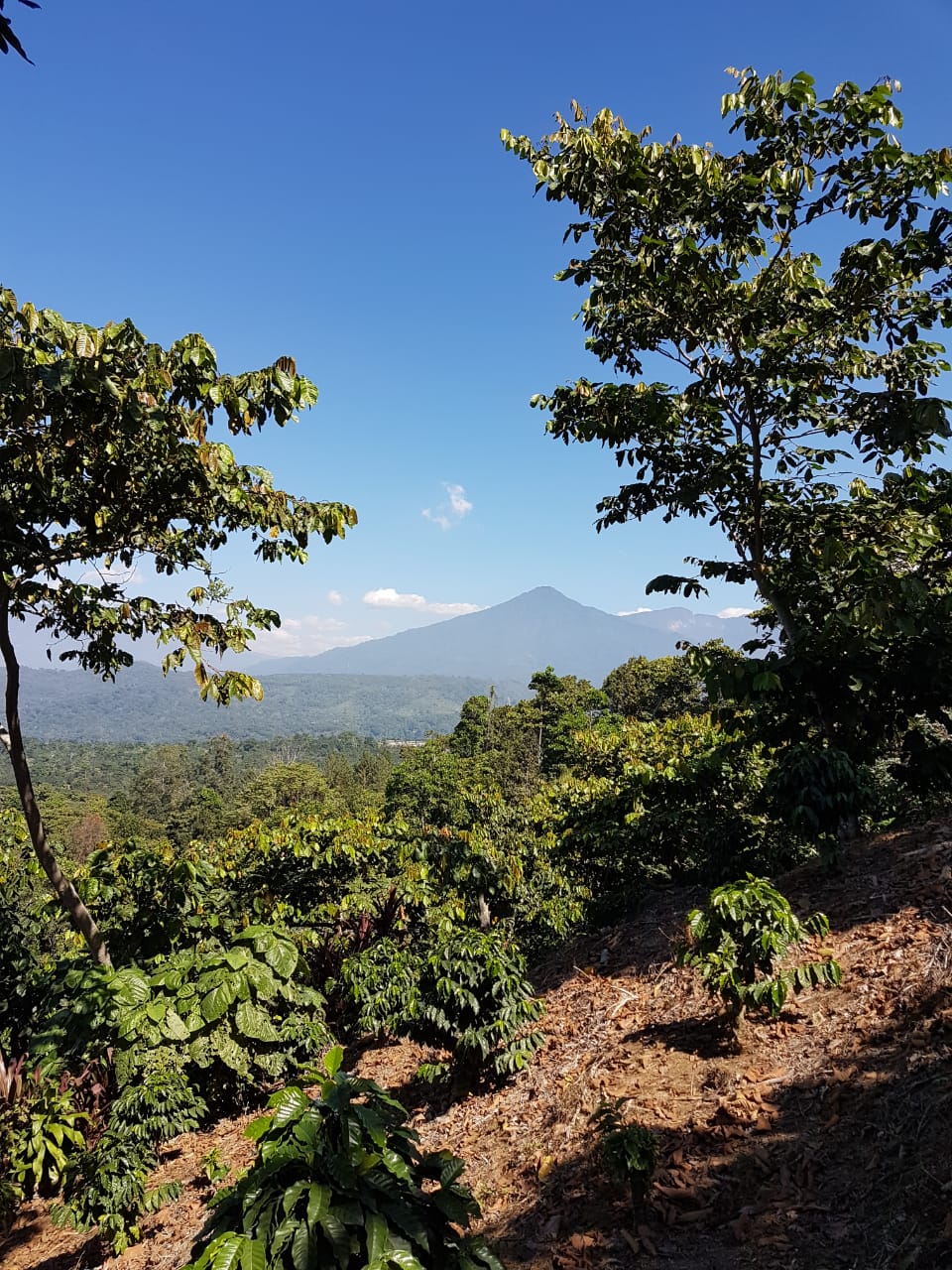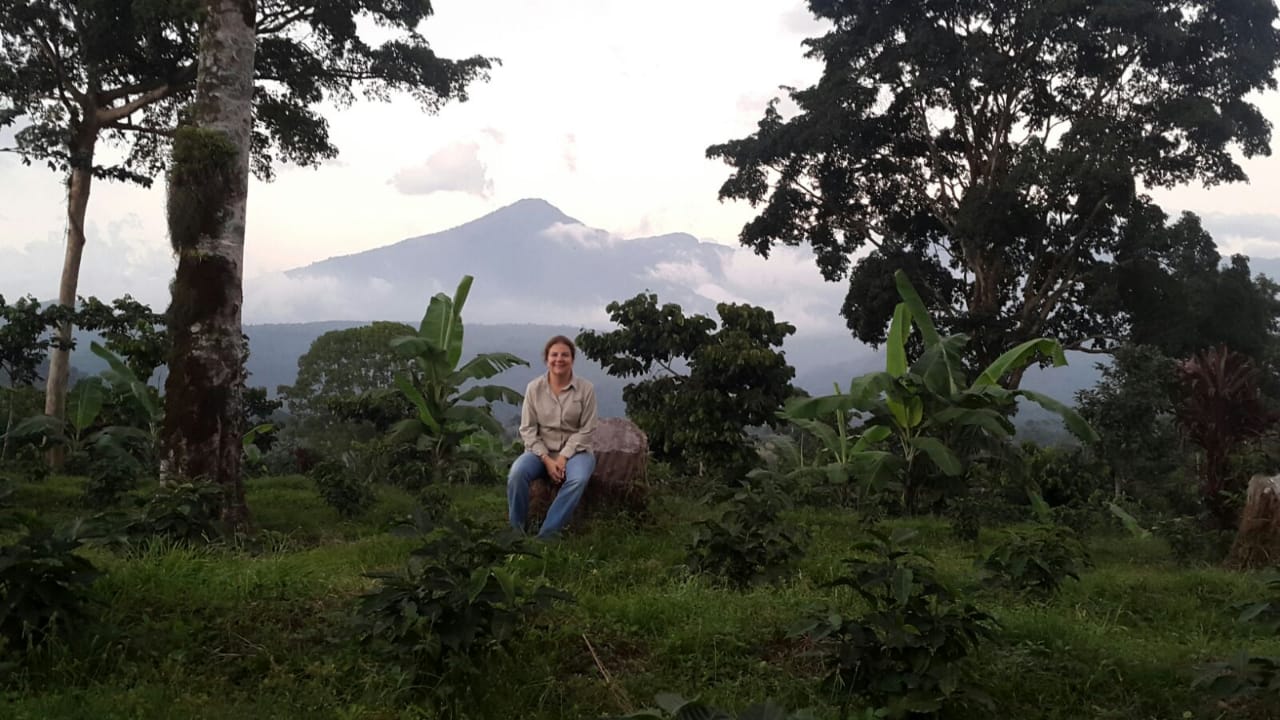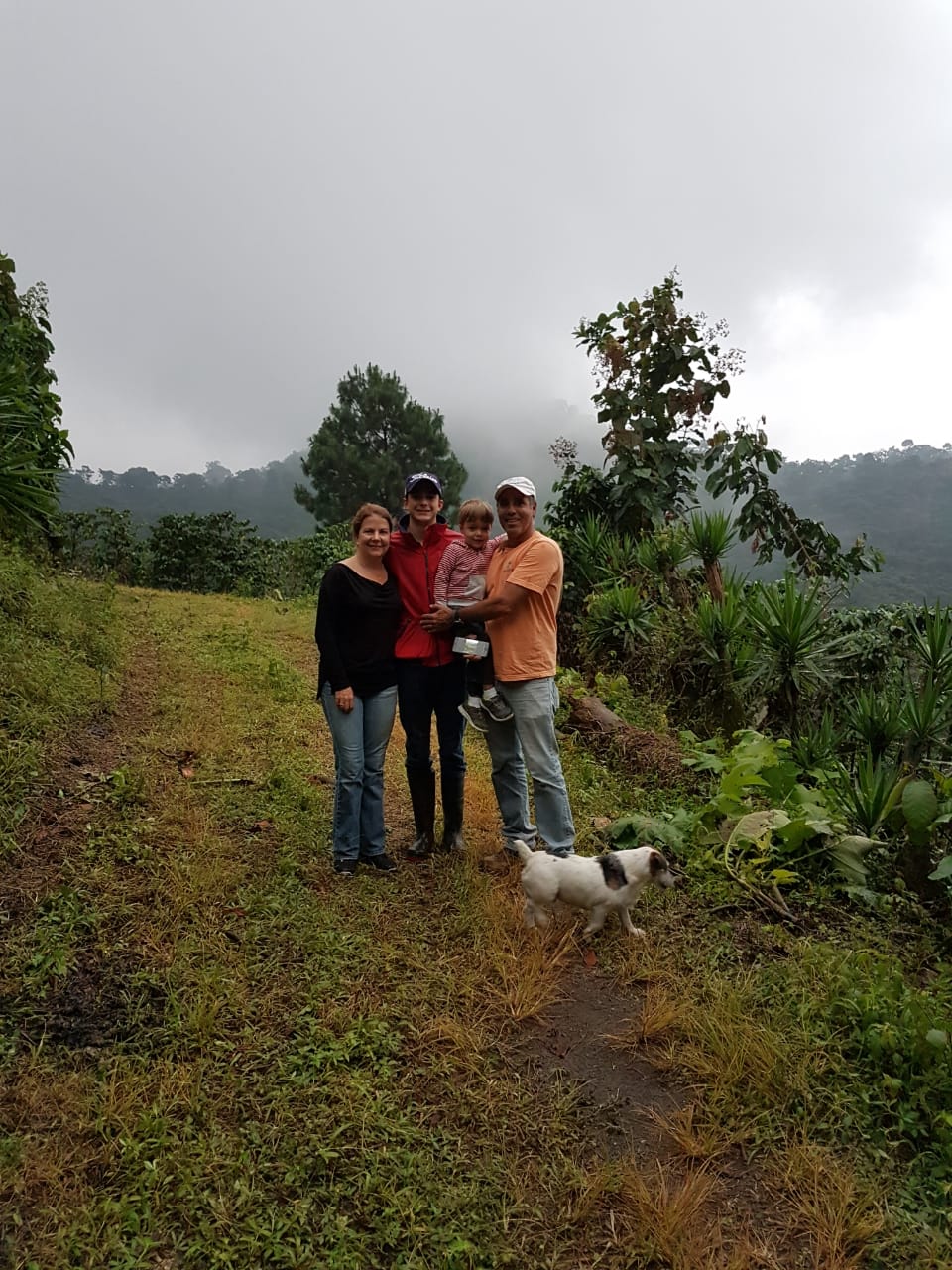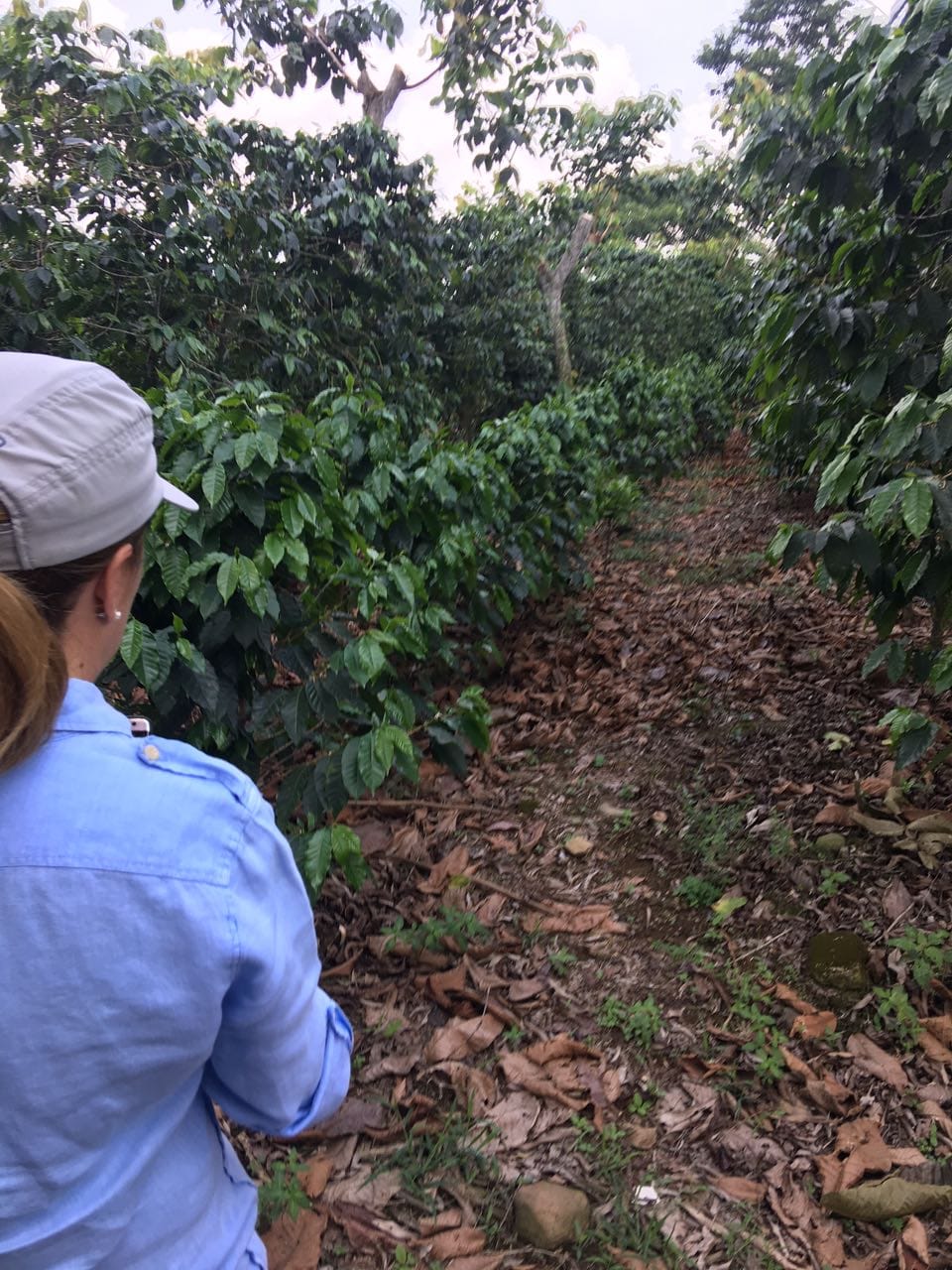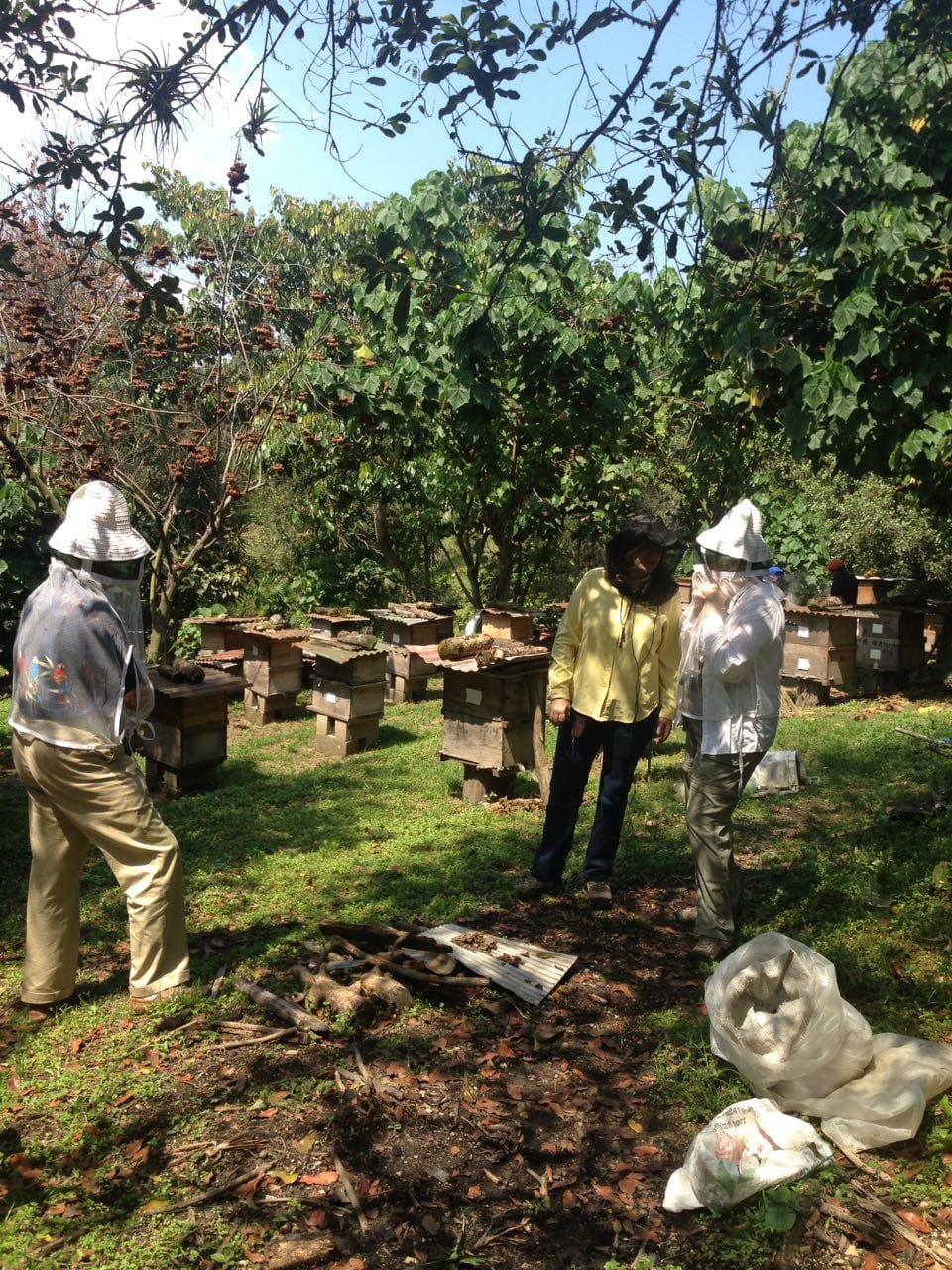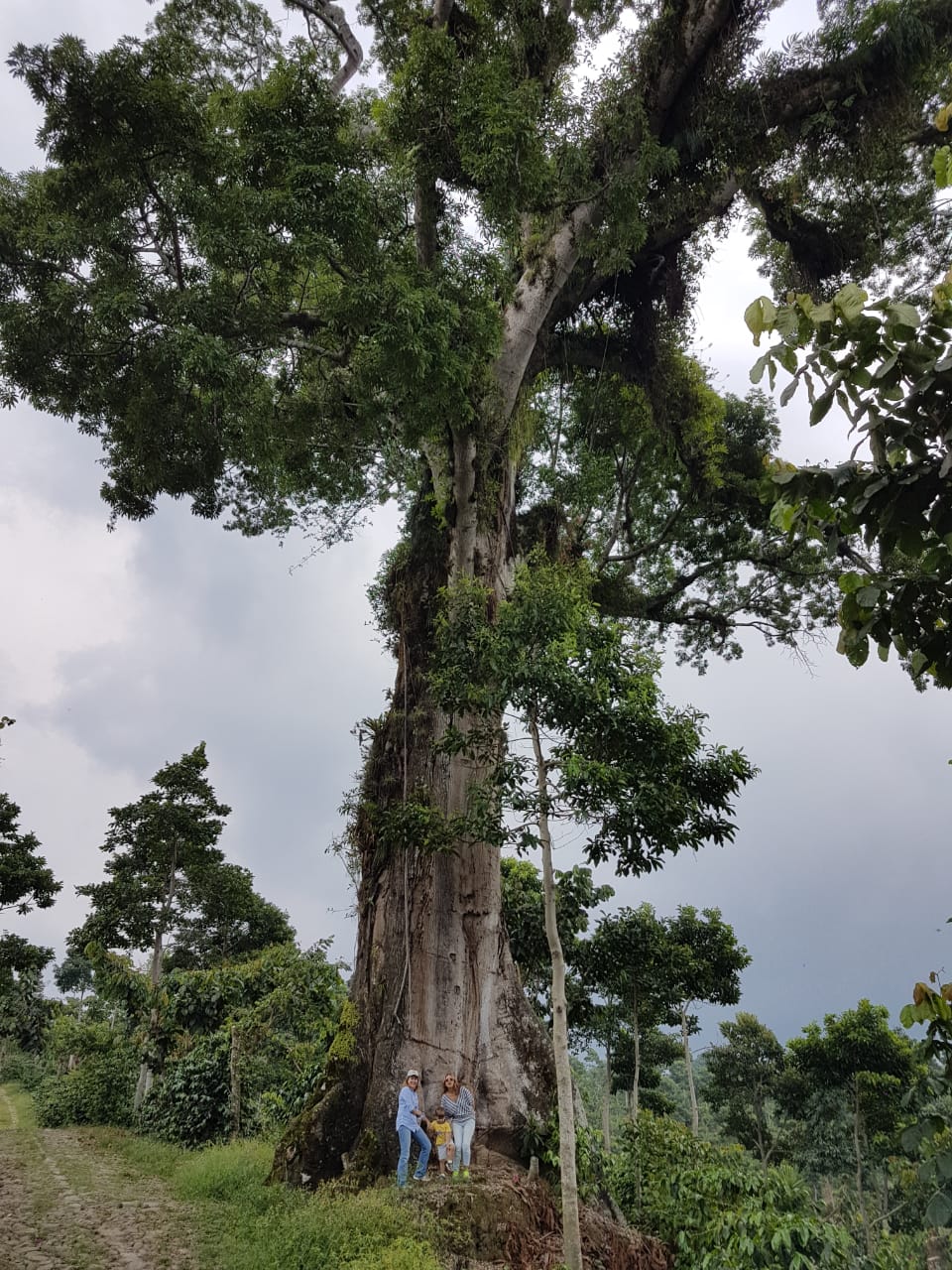Sobre Transito Bolivar
Dawn at the coffee plantation begins before the dawn.
Every day, nature’s concert begins as the heat of the sun lifts the heavy mist and the lush green of the plantation is slowly revealed. The two distinct season of the year reveal dramatically different scenarios. It all starts with the white of the flowering process that completely blankets the plantation, overwhelmed by frenzy of the bees that disrupt the silence of the forest. During the rainy season, growing green cherries slowly begin to take over the long branches of the catuai coffee plant. As harvest time approaches, green turn into a vibrant, bright red.
This concert repeats itself every day, and every year, and does not care for the externalities that make the poetry of coffee production a complex and immensely difficult task.
The history of Transito Bolivar is one of struggle against incredible odds that go from 30% market price fluctuations to thirty-years of guerrilla conflict that destroyed the fabric of the Guatemalan social structure and pitted neighbor against neighbor. The struggle of El Transito is that of two generations of vibrant women - women who, against all odds, maintained an economic unit that is vital to the survival of the communities that surround the farm.
This is the story of El Transito Bolivar.
Transito Bolivar is a third-generation family business motivated by determination, hard work, and deep love for the land and coffee production. It all started when my grandfather, an entrepreneur from Louisiana, bought the farm in 1940. Since then, the farm has been a point of pride for the family for nearly 80 years.
The farm is located in the area of Colomba, Costa Cuca, Quetzaltenango where the practice of coffee cultivation originated in Guatemala. Quetzaltenango (Quet-zal-te-nango) translates to the land of the Quetzal.
Determined to maintain the integrity of the natural ecosystem and traditional Guatemalan fauna, the farm is full of native tree varieties including ceibas and Guayabo, some as old as a hundred years! From December to March, these sacred trees become engulfed by the native Guatemalan orchids, transforming the lush green canopy to radiant shades of pink and purple. With this said, we, at Transito Bolivar, strongly believe in protecting and promoting diversity of flora and fauna, and the adequate use of natural resources.
The legacy of Transito Bolivar was built by my grandparents and since then has been sustained for two generations.
The key to the survival of the farm during the guerrilla war was my aunt Sally Clark Herrera. Her tenacity and courage was commendable in a time when many farms ceased to operate. We remember with incredulity how she would pack coffee into her pick-up truck and drive four hours through hostile roads and military blockades to ensure the lasting success of the farm.
Over the past 20 years, during the recovery of the country from the devastating internal struggle, the fight for survival has been a continuing effort to elevate our quality by replacing plants vulnerable to plagues with other coffee varietals that are more resistant to rust, all while maintaining good cup quality. Under the shade of our Inga trees, we grow Catuai, Caturra, Catimor and Sarchimor.
More than 300 people from the surrounding community are employed throughout the harvesting season to hand pick the bright red cherries, and another 60 people tend to the coffee plants all year-long to ensure a high-quality harvest sustained for many years to come.
The work on El Transito is also a family business for many in our community. Men and women work side-by-side in the different aspects of the production process. Our women are in charge of the delicate task of determining the quality of our production, a critical task that ensures the final product, the “cup” that determines price, name, reputation, etc. Approximately 400 families depend on the economic activity at El Transito Bolivar.
Today, Stephanie Stillman Clark and her four sisters manage the family business. Mother of five children, Stephanie has continued the legacy of the family business and the example of past generations.
“We understand that in order to continue to produce good quality coffee, we must make our operations sustainable – both environmentally and economically. Specialization, differentiation, quality and sustainability are the key words for success. Our success is based on the success of the women that work for El Transito. Our mission is to continue to bring prosperity to the people of Colomba and to promote social development through the role of women in society as the core of the family unit”.
Detalles
TAMAÑO: 320 manzanas (approx. 550.4 hectares)
ELEVACIÓN: 1100 - 1200 msnm
VARIEDADES: Catuai, Catimor, Sarchimor, Caturra
PROCESO: Lavado
PERFILES DE SABOR: Cereza; Nuez, Chocolate
UBICACIÓN: Colomba, Quetzaltenango, Guatemala
Información de Contacto:
+502 5517 6717
Correo electrónico: stephiebauer@gmail.com



